Barry’s Bold Prediction
On 20th April 2016, then-chairman of WST Barry Hearn once said during his tenure as World Snooker chairman:
Other reports wrote that Hearn claimed that the top 16 players in the world rankings will be half-filled by Chinese cueists within 15 years. I also wrote an article on China’s chances of meeting Hearn’s expectations later that year.
The speed by China to produce quality players has been incredible. Ding Junhui’s obvious success spearheaded a snooker revolution in China. Even back in 2015, there was an estimate of 60 million regular performers throughout the country and 1,500 clubs in Shanghai alone. We had a glimpse into the possible future of snooker after watching China B (teenagers Zhou Yuelong and Yan Bingtao) beating Scotland (John Higgins and Stephen Maguire) lifting the 2015 World Cup. Lastly, there were 8 players from mainland China in the Top 64 in 2016. Today, there are 10.
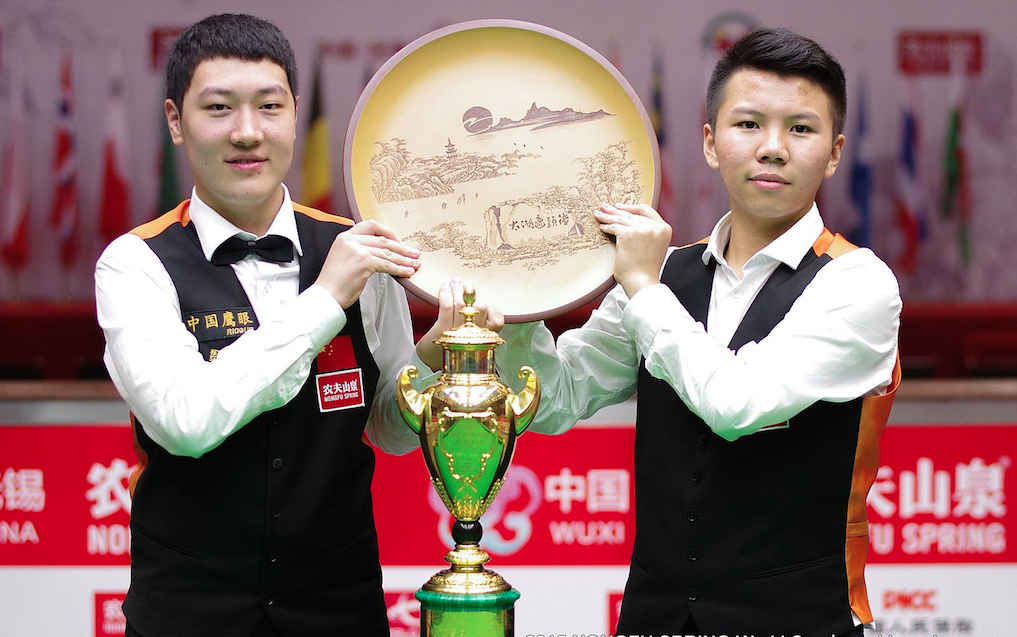
Fast Forward to 2021…
It’s not be as rapid as people may expect but there has been progress.
No one from China has achieved the crème de la crème, which is the World Championship. Ronnie O’Sullivan predicted that Ding would be a multiple World Champion after beating him in the 2007 Masters final. Ding has won numerous titles including four Triple Crown victories. But he has only reached one World Championship final in his career, losing to Mark Selby 18-14 in 2016. Ding hasn’t reached the quarter-final stage in the last three appearances. This, coupled with his erratic form over the past few years, has raised doubt over whether he can win a World Championship trophy at all. No other professional from China other than Ding has reached the World quarter-finals since Liang Wenbo in 2008.

But there is a significant improvement since 2016. Many players reached ranking semi-finals, most recently Lu Ning in the 2020 UK Championship. Seven different Chinese players reached ranking finals, with Ding, Liang Wenbo and Yan Bingtao winning ranking titles. Cao Yupeng and Zhou Yuelong reached two finals each. Yan became the second Chinese player to win a Triple Crown event, winning the 2021 Masters at just 20 years old and recently broke into the Top 16. A lot of under-25 Chinese professionals have a terrific future. Zhao Xintong recently burst into the Top 32 for the first time while Chang Bingyu, Pang Junxu and 2018 Rookie of the Year winner Xu Si also impressed.
What’s been stalling their progress?
There are a lot of factors preventing their expected ascension.
Playing a professional sport so far away from home must be so difficult. Overseas players work without seeing their families for months while adjusting to a new way of life within a completely different culture to their own. It makes things harder for Asian players when a huge majority of the tour is in Europe. It’s been the hardest during the coronavirus pandemic. Chinese players have been away from their relatives for much longer in a country that had long national lockdowns. This must have an impact on their mental health, which of course would affect their performance. With all the Chinese events cancelled in the 2020/21 season and to be confirmed this season, they can’t defend ranking points accumulated on their home turf.
The other major factor is the unexpected and recent longevity of snooker players. There was an expectation that players retire after a loss of form in their 40s, making room for younger talent. But this is no longer the case today. The famous ‘Class of ’92’ are still winning titles and World Championships in their mid-40s. If we follow this pattern, who knows how long the likes of Mark Selby, Neil Robertson and Judd Trump will threaten to dominate?
There are other minor worries. Are Chinese players able to cope with the pressure of performing in front of larger crowds? Are they too attacking-minded? Do they feel even more pressure from their country in succeeding? Are we being impatient and expecting far too much from them?
Will the Prophecy Come True?
Earlier this year, Barry Hearn reckoned though it has taken longer than expected, there are half a dozen Chinese players ready to make their big break. I would agree with them. I think professionals such as Zhao, Zhou and Lu could reach the Top 16 alongside Yan and stay there for many years.
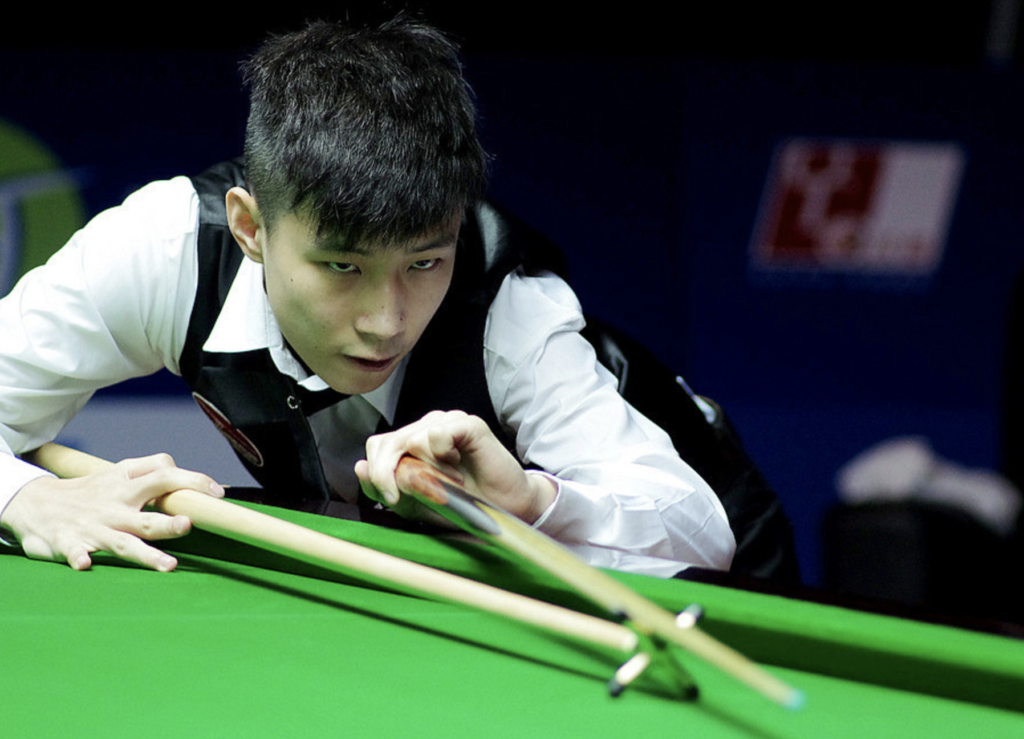
Progress has been made but it needs to be translated into silverware. It is incredibly surprising that just three players from mainland China have won a ranking event. It is widely debated who else other than Ding can win the World Snooker Championship. If or when there will be the first Chinese World Champion, interest in snooker back in their country will soar to amazing heights. More money will be pumped into the sport and there will be a longer conveyor belt of young and hungry players.
But for half the Top 16 to be Chinese players in 15 years? I don’t think so. The likes of Judd Trump, Kyren Wilson, Anthony McGill and Jack Lisowski will be fighting there for a very long time. Not forgetting the plethora of young talent in Europe, such as Luca Brecel, Scott Donaldson, Alexander Ursenbacher, Jamie Clarke and Louis Heathcote. It can be easy to underestimate how much talent there is to compete with China.
But here’s the thing: China has only truly been involved in snooker for just a couple of decades. Already, there are 10 Chinese players in the Top 64 today with many waiting in the wings. Considering the amount of successes China achieved in such a short space of time, we might see that promise being met eventually!



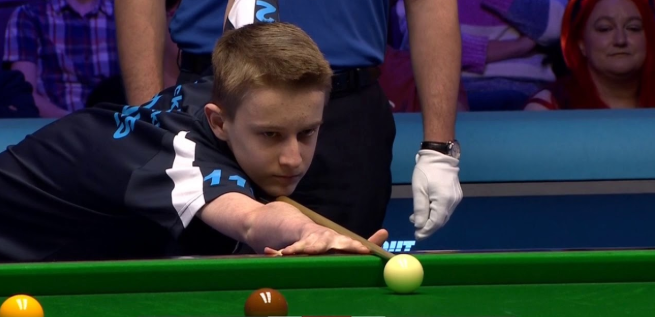
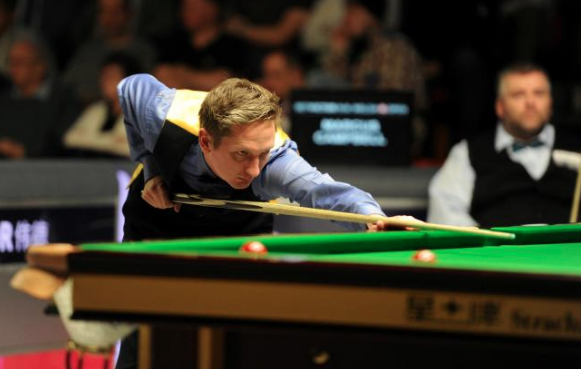
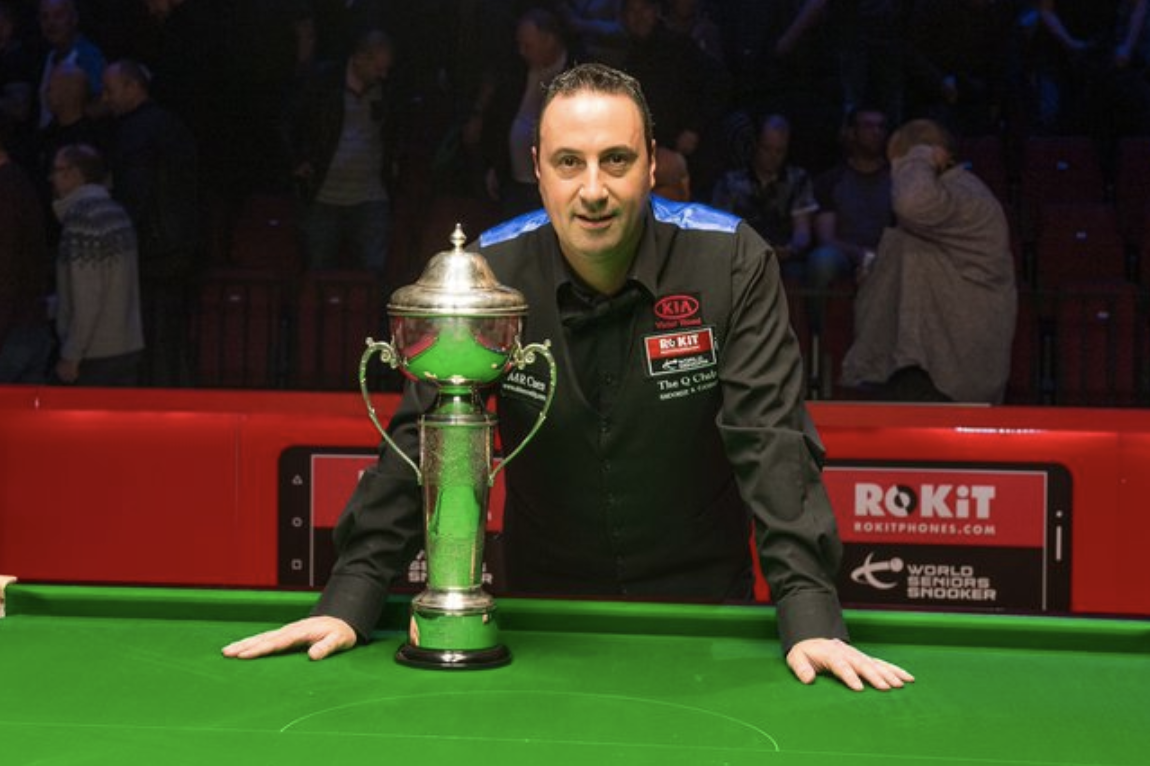
Yes, travelling to the UK to play on what is still effectively a British tour at an extremely young age is very tough for the Chinese players. They have to abandon their families, friends, coaches, culture, language. They are usually playing matches against highly experienced British professionals, who are on first-name terms with the referees, organisers and media. Of course they feel like outsiders. I’m aware of a number of terrible stories involving Chinese players becoming disoriented, homesick, attacked in the street. There was even one case of a 15-year old who could have died in a fire. Fortunately, things are a bit better now as there is more of a community, and three major academies in Sheffield and Darlington.
I’d also say that many of the Chinese players arrive with an inadequate technique to withstand the pressure of professional competition. Good as the academies in China are, they are still learning, and the general level of play on the Pro-Am tour in China is not quite strong enough to prepare them. If you travel to England to play professionally with high expectations, but end up losing a sequence of matches, it’s a lonely place to try and regain confidence. Making fundamental technical changes during the season is almost impossible with the packed schedule we now have. Actually, this is faced by all young players, wherever they are from.
But I agree that had Ding won the World Championship, things would have developed much quicker.
As for the top-16 predictions, you say Trump, Wilson, Lisowski and McGill will be at the top in 15 years’ time. Really? Most likely they will be in decline by then, and their younger British counterparts are no further foward than the Chinese players, and are in fact a few years older. One thing that hasn’t been talked about is whether the young generation of overseas players will be prepared to live for 9 months of the year in England, perhaps when they themselves might have young families. Somewhere down the line WST needs to consider what ‘globalisation’ actually means, because playing the last-64 or last-32 at an overseas venue after qualification rounds in Barnsley isn’t really truly global.